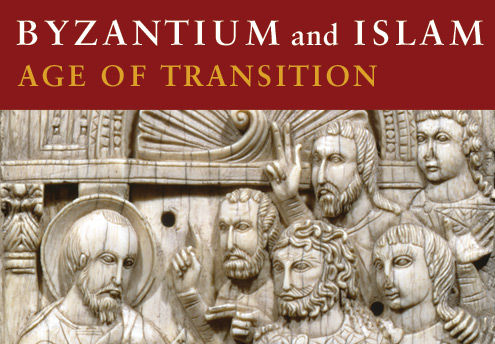After Constantine, Byzantium called itself New Rome. Its emperors ruled in direct succession from Augustus. Yet many non-Roman elements became increasingly important in Byzantine society. A Roman of the time of Augustus would have been ill at ease in Byzantium. After Constantine had become a Christian, the emperor was no longer a god; but his power remained sacred.
A reigning emperor usually followed the Roman practice and chose his heir. When an emperor selected someone not his son, public opinion required that he adopt him formally. Each new emperor was raised aloft on a shield as a sign of army approval, thus becoming Imperator (commander-in-chief). By the mid-fifth century, he might also be formally crowned by the patriarch of Constantinople, and he would swear to defend the Christian faith.
In the seventh century the emperor began to call himself Basileus, King of Kings, in token of his military victory over the Persians. Later still he added the term Autocrat, for the emperor was an absolute ruler. Empresses bore corresponding titles and played an important role. Three times in Byzantine history women ruled alone.
So complex were the rules of imperial life that books were written to describe them. The emperor’s subjects remained silent in his presence. The emperor spoke and gave commands through simple, brief, and established formulas. Those admitted to an audience approached with their arms held fast by officials and ceremoniously fell on their faces in homage when they reached the throne. On public occasions the emperor was acclaimed in song, to the sound of silver trumpets.
The officials of the palace were the most important functionaries of the state. All officials had a title that gave them a post in the palace as well as a rank among the nobility. At Byzantium many of the greatest and most influential officials were eunuchs, an oriental feature of the state that astonished Westerners and made them uneasy. There was never a prime minister as such, though in practice an imperial favorite often controlled policy.
While Byzantine dynasties sometimes lasted several centuries, politicians and the mob often intervened. They imprisoned and exiled emperors, murdered them, blinded or mutilated them (which made them ineligible to rule again), and then enthroned their own candidates. Revolution was viewed as the proper recourse against imperial tyranny. In the Nika revolt of 532 Justinian might have lost his throne had it not been for the coolness and bravery of his celebrated empress, Theodora, who said,
“Now, above all other times, is a bad time to flee, even if we get away safely. Once a man has seen the light, he must surely die; but for a man who has been an emperor to become a refugee is intolerable. . . . Now if you wish to save yourself 0 Emperor, that is easy. For we have much money: there is the sea, here are the boats. But think whether after you have been saved you may not come to feel that you would have preferred to die.”

